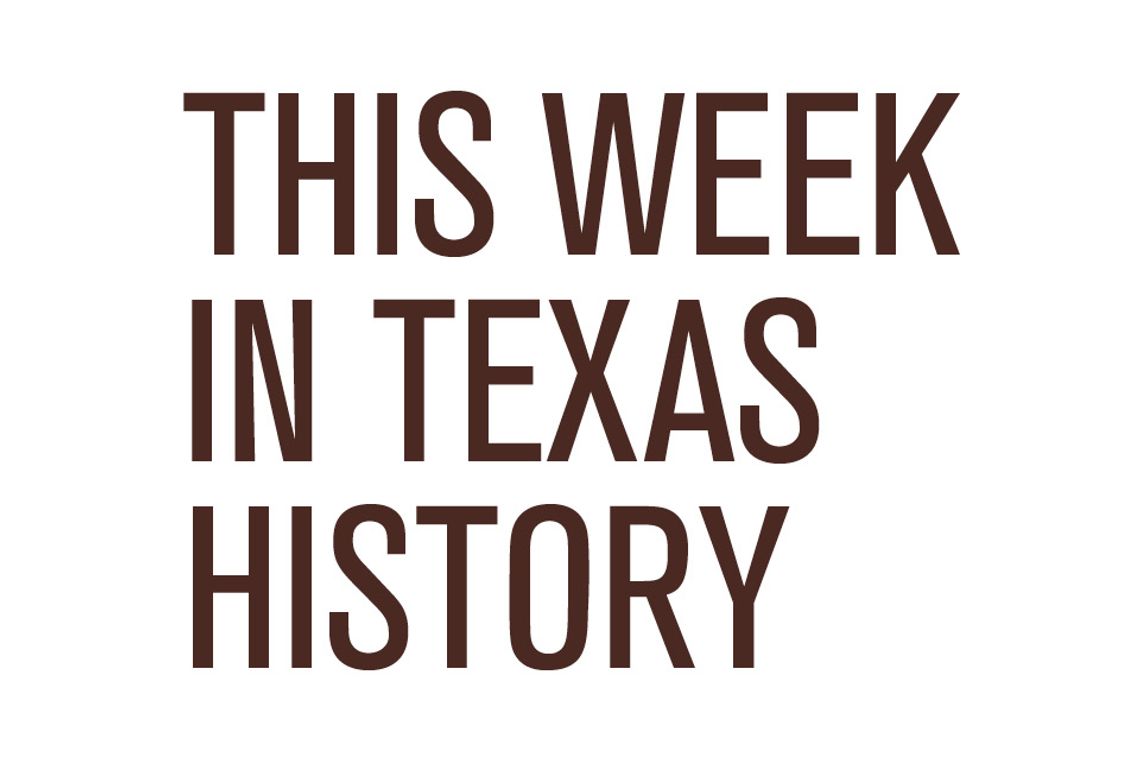Returning to work on Sept. 5, 1837, Samuel Rhoads Fisher, secretary of the Texas Navy, was stunned to discover that President Sam Houston had changed the locks on him.
When the Independence appeared off the port of Velasco in the spring of 1837, the whole town went down to the docks. No one wanted to miss the triumphant return of William H. Wharton, who singlehandedly had talked the United States into recognizing the new nation of Texas.
Among the host of dignitaries on hand to greet the diplomat was naval secretary Fisher. But instead of embracing his old friend, he watched helplessly as Wharton and the Lone Star sailors were taken prisoner by the Mexican navy.
Although every eyewitness was appalled by the high-seas seizure of the Independence, Fisher was absolutely mortified. He felt personally responsible for the abduction of the prominent passenger and the courageous crew and felt his sole chance of redemption was to strike back at the kidnappers.
Fisher hurried to Galveston to consult the captain of the Invincible, one of two warships left in Texas’ rapidly shrinking fleet. H.L. Thompson agreed that the Mexicans must be made to pay for their piracy and immediately began preparations for a retaliatory cruise.
Fisher and Thompson also saw eye to eye on the need for strict secrecy. If Sam Houston got wind of their plan, both could kiss their careers goodbye. But should they succeed in loosening the enemy’s iron grip on the Gulf, even the president would have to hail them as heroes.
At the last minute, landlubber Fisher decided to go along. It may have been a middle-aged craving for adventure, but more likely he wanted to be out of the country when Houston blew his stack.
The Invincible and the Brutus silently sailed on the night of Jun. 11, 1837. Encountering no enemy craft at the mouth of the Mississippi, the Texans turned south toward the Yucatan peninsula.
After an uneventful month on patrol, the first prize was finally taken on Jul. 24. Fisher went ashore three days later to stretch his legs and unexpectedly filled his entire quota of excitement.
The shore party was surprised 100 yards inland by a company of Mexican cavalry. The Texans sprinted for the beach in a futile footrace with the mounted pursuers.
Fisher suddenly stopped dead in his tracks, pointed his pistol at the lead rider and knocked him from the saddle with a perfect shot. His marksmanship took all the fight out of the Mexicans, who were content to watch the foreigners row their dinghy to the waiting mother ship.
The Texans added four more vessels to their prize list before steering a course for their home port in late August. The trick would be to run the blockade outside the entrance to Galveston harbor.
Intercepted within sight of their destination by an entire Mexican squadron, the Invincible and the Brutus battled heavy seas in a gutty attempt to break through the barrier. But in the end both ships ran aground and were pounded into kindling by the merciless surf.
For somebody who had lost Texas’ last two warships on an unsanctioned escapade, Fisher was unbelievably optimistic. Although resigned to an indefinite stay in Houston’s doghouse, he was genuinely shocked to learn that the president had begun impeachment proceedings.
Friends advised Fisher to clean out his desk and fade quietly into the woodwork. Other than permanent exile from government service, there was nothing to gain from butting heads with General Sam.
Nevertheless, Fisher demanded his day in court. Since the case would be tried before the Republic senate, which included many presidential opponents, he was confident of acquittal.
After a long and emotional trial, the senators did rule in favor of the defendant. Even though his rash actions had proved costly to the naval defenses of the beleaguered country, questionable conduct alone did not constitute grounds for removal from office. No politician in his right mind wanted to set that kind of precedent.
Fisher thought the verdict meant his automatic reinstatement, but several sympathetic senators enlightened him. They explained that he could not possibly hope to hold onto a cabinet post against the wishes of the president.
Taking face-saving satisfaction in the fact that his name had been cleared, Samuel Rhoads Fisher bowed to the inevitable. He submitted his resignation on Dec. 5, 1837, and that same day Sam Houston named a new secretary of the vanishing Texas Navy.
Bartee’s four books “Texas Depression-Era Desperadoes,” “Murder Most Texan,” “Texas Boomtowns: A History of Blood and Oil” and “Unforgettable Texans” available at barteehaile.com or by mail at P.O. Box 130011, Spring, TX 77393.










